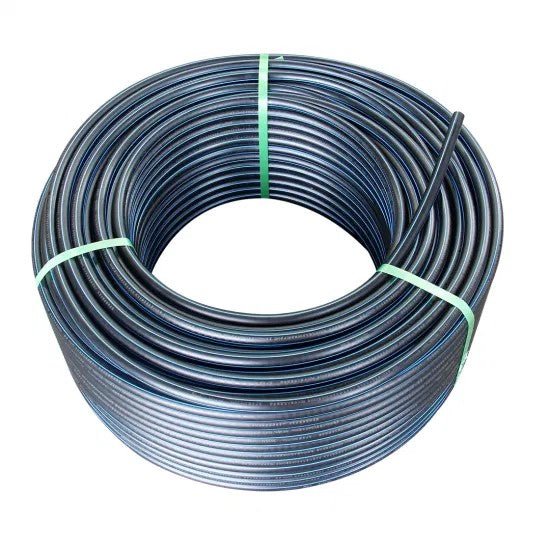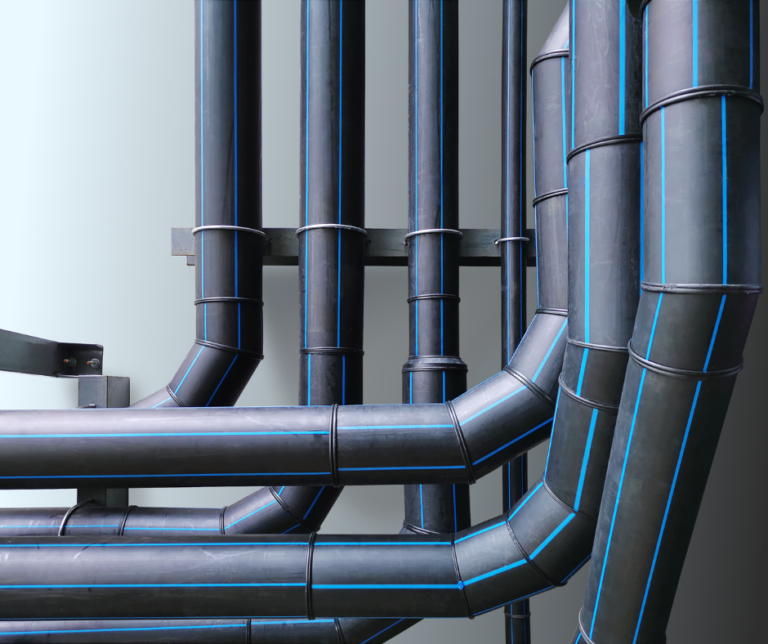How American Plastics HDPE Pipe Manufacturing Maintains Product Consistency
Wiki Article
A Comprehensive Overview to the Different Uses of HDPE Pipeline in Building and Industry
HDPE pipelines have become a pivotal part in modern-day building and commercial applications. Their distinct residential properties, such as resistance to rust and light-weight style, make them ideal for a variety of usages. From water supply systems to farming irrigation, HDPE pipelines offer services that improve performance and sustainability. Recognizing their diverse applications is important for specialists looking to maximize facilities. What details benefits do these pipelines give each sector?Water Supply and Circulation Equipments
Supply of water and circulation systems are important components of metropolitan framework, frequently relying upon high-density polyethylene (HDPE) pipes for their durability and effectiveness. These systems transport potable water from therapy facilities to consumers, making sure access and security. HDPE pipelines are preferred for their resistance to rust, chemicals, and extreme temperature levels, which enhances their long life and lowers upkeep expenses. Furthermore, their lightweight nature permits much easier installment and transport, making them perfect for different metropolitan and rural applications.The flexibility of HDPE pipelines allows them to be set up in tight areas and around barriers, lessening the need for considerable excavation (Pipe Supplier American Plastics Midland). Their smooth interior surface lowers friction losses, boosting water circulation rates. As cities remain to expand, the demand for trustworthy supply of water systems raises, positioning HDPE pipelines as a lasting option for modern-day facilities projects. Their tested track document makes them a recommended option amongst engineers and urban coordinators alike
Wastewater Monitoring and Therapy
Effective wastewater administration and treatment are essential for preserving public health and wellness and ecological top quality. HDPE pipes play an essential function in this procedure as a result of their resilience, resistance to rust, and capacity to withstand extreme chemicals. These pipelines are generally used in different applications, consisting of sewer system, stormwater drain, and wastewater therapy facilities. Their lightweight nature promotes much easier installment and transportation, minimizing labor expenses and time.Furthermore, HDPE pipelines have a smooth indoor surface that decreases friction loss, promoting effective circulation prices. They are likewise much less vulnerable to leakages and failures compared to traditional products, making sure that contaminants are contained effectively. In addition, their versatility enables flexibility in different dirt problems, making them appropriate for diverse ecological settings. As markets increasingly focus on lasting techniques, the usage of HDPE pipelines in wastewater management systems lines up with objectives for reducing ecological effect and boosting resource recovery.
Agricultural Irrigation Solutions
In agricultural settings, reliable watering solutions are important for maximizing crop yields and managing water sources. HDPE (High-Density Polyethylene) pipes play a vital function in contemporary watering water main leak detection systems due to their resilience, adaptability, and resistance to deterioration. Their capacity to hold up against high stress makes them suitable for both surface and subsurface irrigation applications, making certain uniform water distribution throughout fields.Farmers can use HDPE pipelines in drip irrigation systems, which deliver water directly to plant roots, minimizing wastefulness and advertising healthy and balanced growth. Additionally, these pipelines are lightweight and simple to set up, minimizing labor prices and installation time. Their lengthy lifespan and reduced maintenance requirements further boost their allure in farming methods.
HDPE pipelines are ecologically friendly, as they can be recycled and do not seep unsafe chemicals into the soil. This makes them a sustainable selection for farmers aiming to embrace eco-friendly agricultural techniques while taking full advantage of productivity.
Industrial Applications and Procedures
Adaptability is a hallmark of HDPE pipelines, making them essential in numerous commercial applications and procedures. These pipes are widely used in chemical processing sectors because of their outstanding resistance to a large range of destructive materials. HDPE's lightweight nature, incorporated with high tensile strength, permits easy setup and lasting performance in requiring environments.In the oil and gas market, HDPE pipelines play a necessary duty in delivering hydrocarbons and gases, thanks to their toughness and flexibility - American Plastics HDPE Pipe Manufacturing. Additionally, they are utilized in mining operations for speed rail pipe the transport of slurry and other materials, where conventional piping systems may fail
Additionally, HDPE pipelines are significantly made use of in manufacturing facilities for supply of water lines and wastewater administration. Their capacity to withstand extreme temperatures and pressures makes them suitable for a range of commercial procedures. On the whole, HDPE pipes contribute significantly to performance and safety across diverse industrial applications.
Stormwater Management and Drainage Solutions
Stormwater monitoring and drainage systems are important parts in metropolitan facilities, developed to manage excess rainfall and minimize flooding dangers. High-density polyethylene (HDPE) pipes are significantly made use of in these systems because of their toughness, versatility, and resistance to corrosion. These pipelines effectively carry stormwater away from populated areas, next page decreasing surface area runoff and preventing waterlogging.HDPE's light-weight nature helps with easier installment, decreasing labor expenses and construction time. In addition, its resistance to chemicals and environmental stress factors assurances long life and dependability in numerous climates. In enhancement to traditional water drainage applications, HDPE pipes are likewise employed in ingenious solutions such as environment-friendly infrastructure, which consists of rain gardens and absorptive pavements.

Regularly Asked Questions
Just How Does HDPE Pipe Contrast to PVC Pipe in Cost?
Generally, HDPE pipe tends to be more pricey than PVC pipe as a result of its improved durability and versatility. Lasting cost factors to consider, such as upkeep and lifespan, may favor HDPE in certain applications.What Is the Life-span of HDPE Pipeline Under Numerous Conditions?
HDPE pipes generally have a life-span of 50 to 100 years, depending on environmental problems, installation practices, and usage. Variables such as temperature, soil kind, and exposure to chemicals can significantly affect their longevity.Can HDPE Pipes Be Recycled After Use?
Yes, HDPE pipes can be reused after use. The reusing process entails melting down the material, permitting it to be repurposed into new items, consequently promoting sustainability and minimizing environmental effect related to plastic waste.Are There Any Kind Of Particular Setup Challenges With HDPE Pipes?
Setup difficulties with HDPE pipes consist of proper jointing strategies, ensuring sufficient trench problems, and taking care of thermal growth. In addition, skilled labor is required to take care of specific equipment, which can complicate the installation process in numerous environments.
What Qualifications Should I Try To Find When Buying HDPE Pipelines?
When purchasing HDPE pipes, one should seek certifications such as ASTM, AASHTO, and ISO, which validate top quality and conformity with market standards, guaranteeing durability and efficiency in different applications. - Texas hdpe pipe manufacturerReport this wiki page